Dec 20, 2020 | Dennis Metcalf
My reservation, the Crow Creek Indian Reservation, lies along the Missouri River in the middle of South Dakota, where long stretches of land move like waves. Riding in the car to and from Chamberlain for school was a daily routine.
School gave me anxiety. By the time I went to high school, I had decided people weren't friendly—I didn't fit in because people were already set in their ways. I didn't have a place in their lives.
I valued the education and knowledge that was available to me. Still, the environment didn't allow me to work at my own pace. At school, I was surrounded by a lot of people, but I was alone—all of the time. Going home each day offered partial relief.
Not much went on at home. My family struggled with alcoholism and poverty. Despite this, I grew used to that lifestyle. Life was simple. I worked in my room. I drew, created, cleaned, painted, and tinkered with electronics—tearing them apart to see how they worked. My room was safe from all the noise and chaos. While in my room, I felt as if I were anywhere but the reservation. For most of my life, I did the same things: went to school, did my chores, went to the local store, and remained in my home—never leaving when I didn't have to.
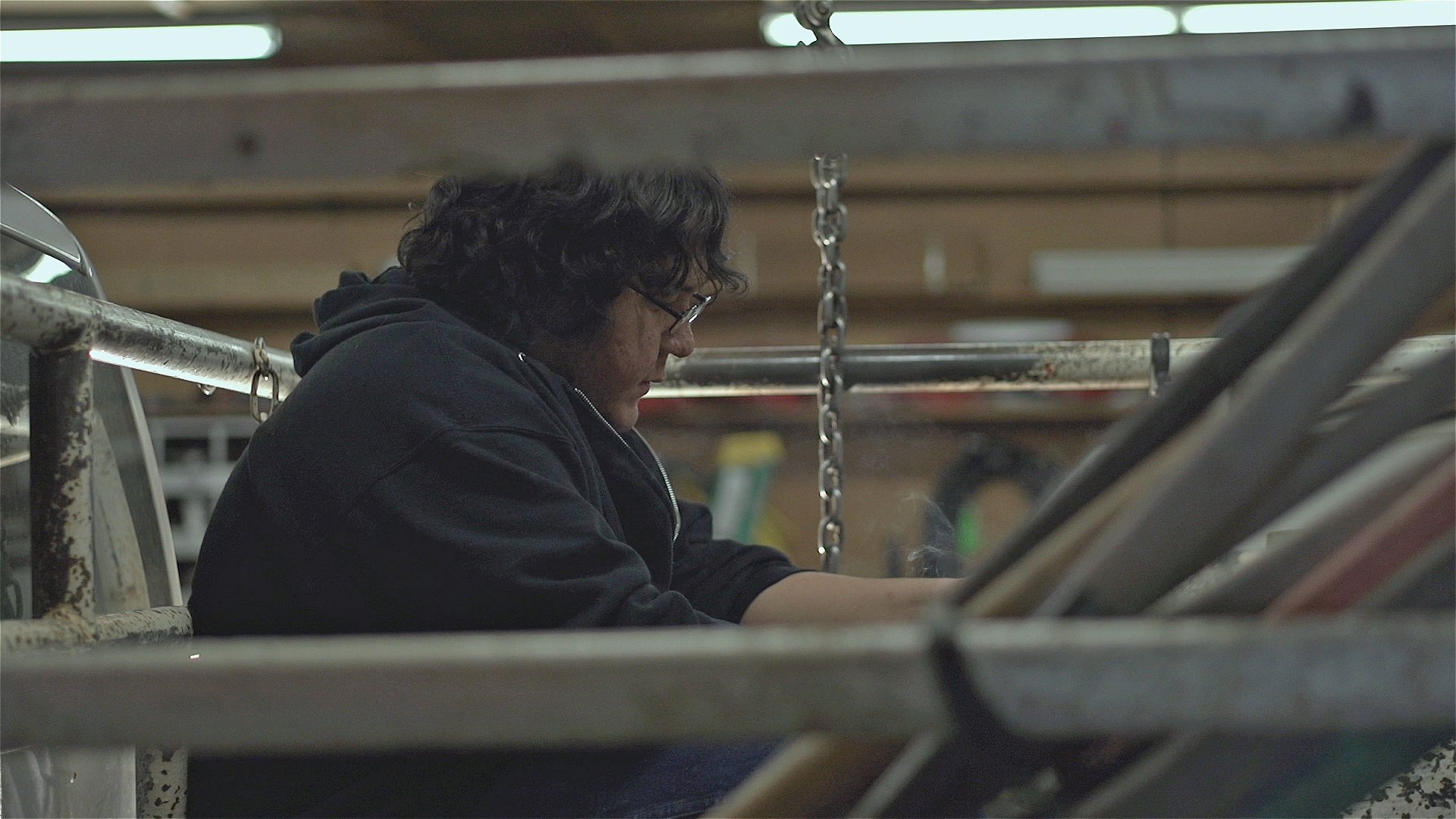
I was eighteen with six out of 23 credits needed to graduate high school. I felt like I was at a dead end with nowhere else to go. My mentor and teacher, Trisha, helped me look for alternative opportunities for education. We decided to apply for Job Corps in Box Elder, South Dakota, and off I went.
Leaving home for the first time at age 19 created a challenge for me. However, Job Corps presented a second chance at a high school education. I remember being afraid of going to a new place that wasn't home, sleeping in a different bed, establishing a new routine. The four-hour distance between the Job Corps campus and home made me anxious. I wanted to leave immediately, despite the alcohol problems and poor living situation at home—I wanted to return home that same day I arrived.
In two years, I completed my GED and achieved a high school diploma and a culinary arts certification. I traveled to Colorado, Oregon, and Montana on Fire Kitchen and camp crew. Traveling made me curious about the world. However, I went home and found myself back in my room, stuck in a loop—I wanted more.
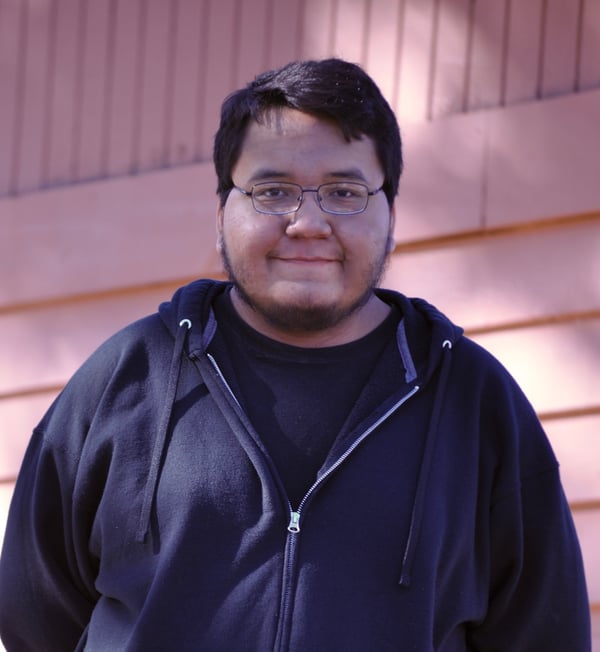 College wasn't a subject discussed at home; it seemed out of reach, only for people who had money. Additionally, paying for college seemed like an extremely complicated process. For starters, no one taught me how to apply for college nor what to expect. The collegiate terminology baffles me. I actually didn't know what a scholarship was until I filled one out. College seemed out of the question for someone like me whose family struggled to make ends meet. This prevented me from considering furthering my education for years.
College wasn't a subject discussed at home; it seemed out of reach, only for people who had money. Additionally, paying for college seemed like an extremely complicated process. For starters, no one taught me how to apply for college nor what to expect. The collegiate terminology baffles me. I actually didn't know what a scholarship was until I filled one out. College seemed out of the question for someone like me whose family struggled to make ends meet. This prevented me from considering furthering my education for years.
However, I felt empty sitting at home as my family struggled. I knew I needed to explore the world and its options, so I could be a benefit to my loved ones. I decided to apply for acceptance into college at the Institute of American Indian Arts [IAIA] in Santa Fe, New Mexico. The distance between IAIA and home would be 857 miles—this thought gave me anxiety. In the end, I decided I had to give it a try.
I started my first semester at IAIA in the fall of 2020. My mentor, Trisha, and I made the two-day road trip from Chamberlain, South Dakota, to Santa Fe, New Mexico. Once I got there, I felt intimidated by my surroundings. Everything seemed so different again; no longer was I in my comfortable cold weather. I was in a warmer climate. I watched as we left the green hills and plains to a more desert and mountain range environment.
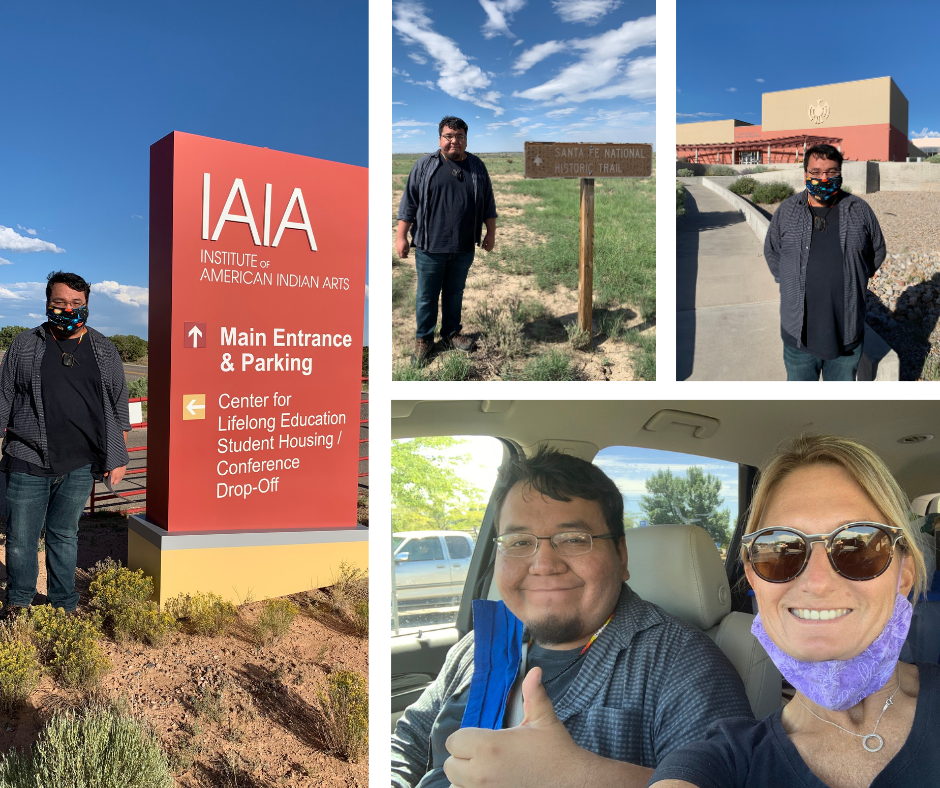
The school gave me a great first impression—the campus is modern and has many unique structures and artwork all around. IAIA is small for a college, but it is much larger than I initially thought it would be. When my mentor left me at school, I felt sad again, and I began to think this was a silly idea. I thought I could have just stayed at my job and saved money, but truthfully, saving money never worked.
When classes began, I started asking lots of questions and made sure I understood everything I was told. This isn't something I would normally do for myself, but I made sure what I was supposed to be using, where I would be going, and how to turn in my assignments. Once I got my schoolwork all figured out, I began asking the dorm housing staff a lot of questions, too. Originally, I was afraid to bother people by asking too many questions. But I learned that I need to ask questions to better understand my environment or what to do next. If I hadn't done that, I probably wouldn't have been as comfortable at college as I was.
While at school, I did great things in a short amount of time. I took classes in filmmaking, photography, and technology. I learned how to edit and use programs that allow me to make new forms of creative content. Next semester, I will take game programming, botany, and a drawing course! Not only did I learn how to work with new programs, but also I learned valuable lessons like time management and confidence. I realized it's important to speak my mind and how helpful it is to meet new people. Even though I just completed my first semester, I learned a lot and now look forward to what's next.
Even with my positive experiences and new knowledge, I still struggle with the pull from home. I have a need to go back to a place with which I feel comfortable and familiar. The hardest pill to swallow is that I need to be at school—I need to be away from home. The pull to come home is something I still struggle with today.
As Covid-19 impacts my hometown, I worry about the elders who are at risk and how the virus will affect my community. I feel stupid for leaving my loved ones during a pandemic, but there was no way I could support my family in the long term just living paycheck to paycheck. To help them long-term, I hope to show them and others that further education is possible for those from low-income areas or who live in poverty.
Instead of having the pull keeping me from going forward, I keep it in my mind as motivation to go further. Because I can choose to set an example to the younger generation that higher education is possible and give hope to those who don't know what's next.
We are proud to tell the stories and show the work of passionate and creative young Natives. Together, we can visualize and act for a better future. Together, we can transform narratives of destruction and despair into narratives of hope. Subscribe to our blog and join our family.

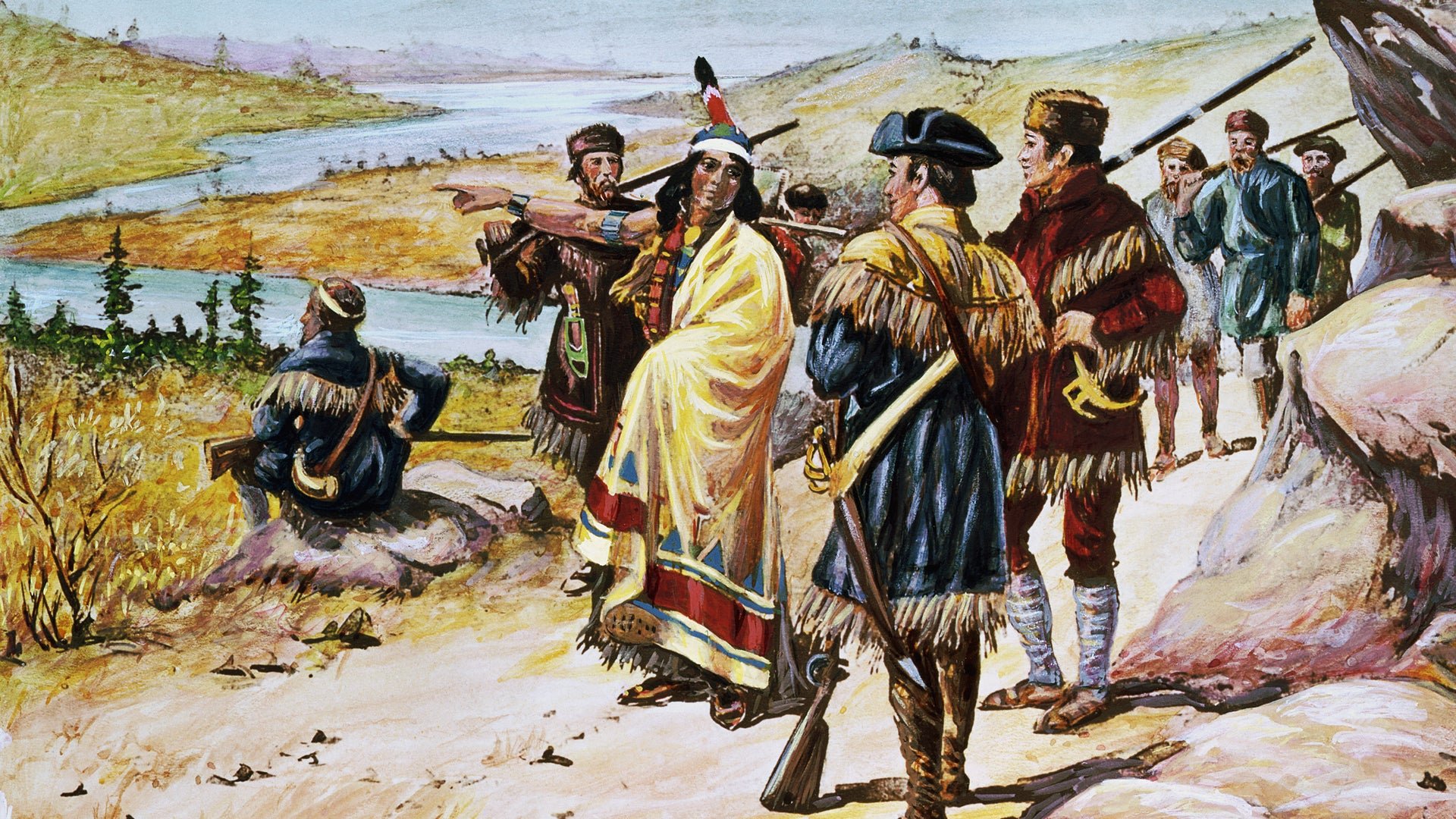
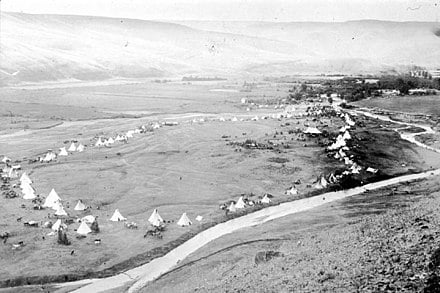

COMMENTS